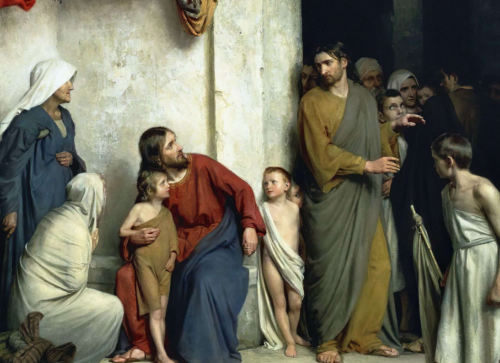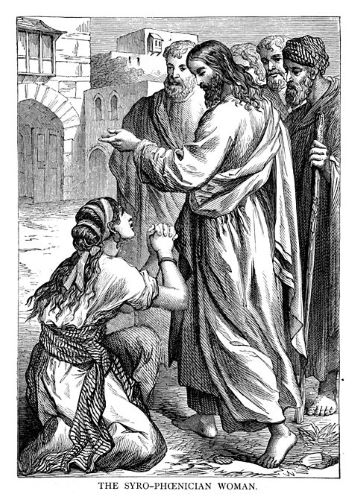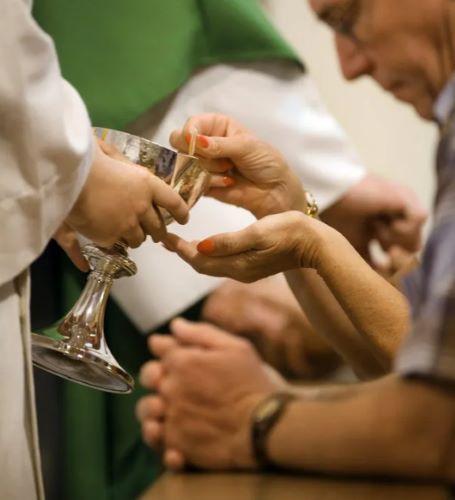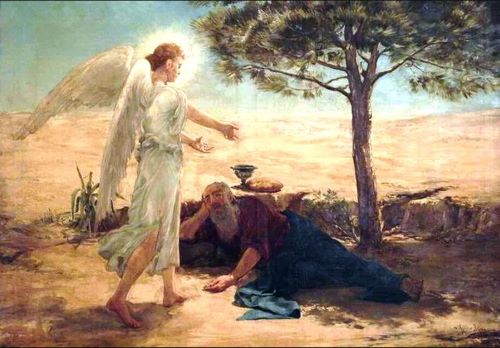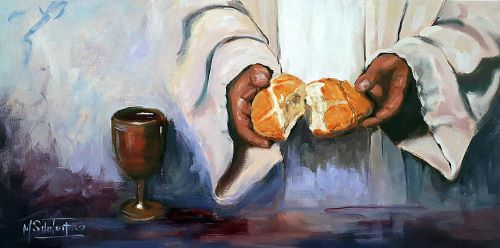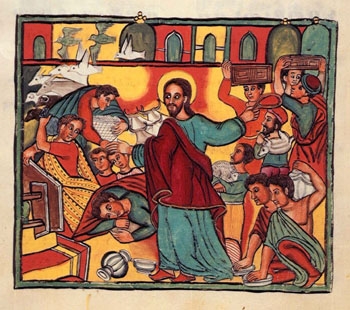
Forgiveness for Sale
Year B
Exodus 20:1-17
Psalm 19
1 Corinthians 1:18-25
John 2:13-22
May the words of my mouth O God… speak your truth…
We need to remember that our oldest sacred texts… did not arise in a vacuum… there were already other creation stories in the ancient Near East… the Babylonian Enuma Elish … which was discovered in 1849 by British archaeologist Austen Henry Layard… bears striking parallels with the one in Genesis… and the flood story in the Gilgamesh Epic… is similar to ours with Noah and the Ark… and the literary form of the Ten Commandments… or Ten Words… is based… on the ancient Near Eastern suzerain-vassal treaty form… which established the relationship between an overlord and his people… and what he had done for them… and what was expected of them…
Having just come out of Egypt… the Israelites knew what it was to be dominated by pharaoh… they knew the hardships it entailed and the meager benefits it provided… but using the form of an aNE treaty for this purpose would have been unprecedented… and brilliant … ] because now the ten words define relationship… I am the Lord your God… ] tell what God had done for the Israelites… who brought you out of the land of Egypt… ] and how the Israelites were to behave… and by applying it in this new way… in this new relationship… there was a pivotal shift for this people and for their future…
Biblical scholar Walter Brueggemann wrote… these commands might be taken… not as a series of rules… but as a proclamation from God’s own mouth… of who God is… and how God shall be practiced… I like that… how God shall be practiced by this community of liberated slaves…
Now when God made God’s covenant with Noah… there were no conditions… when God made God’s covenant with Abram… there were no conditions… but here… in these Ten Words… there are… because today’s covenant moves from individual behavior to corporate behavior… from what’s asked of individuals… to what’s asked of the nation… and as a result… it creates a more ordered relationship between God and Israel… and results in a broad social contract between the people themselves… if you honor the Sabbath and keep it holy… that’s a reminder that you don’t have to work 24 / 7 each and every week… there are reminders that if you follow God’s law… you won’t have to steal to survive … or take a life to survive… and we have the opportunity to consider how God’s relationship with these ancient people… reflects God’s continuous relationship with us and our worship today…
The First Temple was constructed during the reign of David’s son… King Solomon… and was completed in 957 BCE… but historically… God did not ask for the Temple to be built… but it is recorded in 1 Kings 9:1-3 that when Solomon finished building it… that God appeared to him and said… I have consecrated this house that you have built… and my eyes and my heart will be there for all time… and while there were other sanctuaries which retained their religious functions… King Josiah… who reigned from about 640 – 609 BCE… abolished them… and established the Temple in Jerusalem as the only legitimate place of worship and sacrifice in the southern kingdom…
The first Temple… you’ll remember… was destroyed during the Babylonian Exile in 586 BCE… and the second Temple was built in about 516 BCE… after King Cyrus of Persia freed the Israelites from their captivity… and allowed them to return to Jerusalem… but God’s Spirit never descended on the second Temple… in the way it descended on the first… the awe of the first Temple was never experienced in the second Temple…
Pastor Joy J. Moore said… God’s expectation is that God’s Spirit is going to be on our hearts… so it’s about being in a body… and not in a space… and what was it that Israel was to be… when Israel got it right… others saw a peculiar people… it wasn’t the grandeur of their Temple… other people had awesome temples… it definitely wasn’t the grandeur of the second Temple… but it was what they did… ] and what they did was how they cared for the Other when they followed the Law… that they attended to the foreigner… that they cared for the immigrant… that they treated their slaves differently than everybody else… and that’s woven into this reading… and if we look around at the world today… and how we treat our neighbors… it’s clear that we need… as Brueggemann wrote… more practice of God…
But in today’s text… Jesus is angry because they’re getting the practices for worship right… but they’re not doing the practices of loving neighbor… which is what all of this has always been about… Jesus is not against the Temple… he’s a Jew… he’s there for the Passover… and the Temple doesn’t function unless it’s a marketplace… but as John Shea writes… the worship of the Temple… traffics in physical and social life… that is… with animals and money changers… slaughtered animals become essential intermediaries between God and worshipers… ] also… God and worshipers relate commercially… and exchange is the name of the game… worshippers give God something… and God gives worshipers something… the worshiper gives God a sacrificial animal… and in return God gives the worshiper forgiveness for sins and help in various endeavors… and this basic exchange is flexible enough to accommodate all the spinoffs of quid-pro-quo living we can imagine… for example… during Lent… don’t some of us promise to sacrifice something… as a way of securing more of God’s favor…
And in Temple worship… the more perfect the sacrifice… that is… without blemish… the more assurance of forgiveness and help there is… in this way… the mentality of the marketplace permeates Temple worship such that it degenerates into deal making… Jesus’ Father however… is not a deal maker… God does not exchange favors for sacrifices… the Father is free flowing spiritual life and love that cannot be bought… bartered… bargained… or bribed… and so animals and money are inappropriate for two reasons… first… they belong to the physical and social spheres… and mask the spiritual nature of the relationship between God and worshipers… second… they are gifts of the worshipers… and so mask the priority of God’s free gift of love… they give the impression of a payoff…
So set the animals free and chase the money changers away… they may be needed in the Temple building… but they are not needed “in my Father’s house”… it’s much like the practice that Martin Luther railed against… the buying of Indulgences… the more expensive the purchase… the sooner your loved one could get out of Purgatory…
John’s theological purpose… is the first embodiment of 1:14… the Word became flesh and dwelled among us… not to discount the Temple… or Judaism… but to see that God is now dwelling in Jesus…
In John 4:20-24… the Samaritan woman at the well said to Jesus… Our ancestors worshiped on this mountain… but you say that the place where people must worship is in Jerusalem.” and Jesus said to her, Woman, believe me, the hour is coming when you will worship the Father neither on this mountain nor in Jerusalem. But the hour is coming, and is now here, when the true worshipers will worship the Father in spirit and truth… God is spirit, and those who worship him must worship in spirit and truth…
Jesus overrides even what King Josiah did… when he made the Jerusalem Temple the only acceptable place of worship… so it would be a good Lenten exercise to ask ourselves… why do we worship… do we do it for God… do we do it for ourselves… and how might we hope to write God’s law on our hearts… and what kind of worship helps us remember that we are the created icon of God… and as such… what do we hope to embody… and how do we want to behave…

